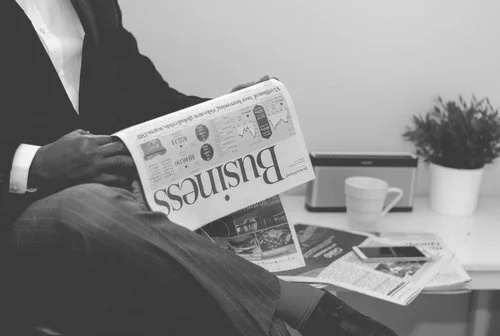A historian looks ahead at a transformed post-pandemic world: NPR's Lulu Garcia-Navarro talks with Yuval Noah Harari about what happens once COVID-19 is beaten. https://n.pr/2RhoA0P
AP: Insider Q&A: ‘Everyone will suffer’ from US-China spat https://bit.ly/3aNDHa9
"The United States and China together comprise as much as 40% of the global economy. If US-China relations continue to deteriorate, everyone will suffer. In both countries, there is a danger that excessive nationalism or protectionism will distract us from pragmatic solutions to real problems. It would be helpful if both sides took measures to restore trust within the world’s most important bilateral relationship."
Melanie Phillips: West can no longer turn a blind eye to China: Beijing must be called to account after this crisis for its lies about the spread of coronavirus. https://bit.ly/3aNoF3X
Shannon K. O'Neil: How to pandemic-proof globalization: Redundancy, not reshoring, is the key to supply chain security. https://fam.ag/2yDn2Yz
Stretching the international order to its breaking point: The greatest error that geopolitical analysts can make may be believing that the crisis will be over in three to four months. https://bit.ly/34b1azx
Steve LeVine: How the Black Death radically changed the course of history: And what that can teach us about the coronavirus’ potential to do the same. https://bit.ly/3aXtoAt
What do futurists imagine for the post-coronavirus-pandemic world? There's no doubt that the coronavirus pandemic has changed daily life. But what changes will last? How will we live when it's all over? DW asked futurists for their visions of life after COVID-19. https://bit.ly/2x1JD0l
Reporting for coronavirus duty: Robots that go where humans fear to tread: A robotic army is being deployed in the virus fight to radiate surfaces, sanitize floors, scan for fevers and enforce mask-wearing. https://on.wsj.com/2Rgt9s6
Chris Fussell: We need to link local leaders directly to one another: A strategy that helped Americans defeat al-Qaeda could be the key to stopping the coronavirus. https://bit.ly/2V0PX0c
"This pandemic presents an incredible challenge for our nation, but we’ve learned previously how to defeat a problem like this. Agency and state bureaucracy will help us make sound and structured decisions, but it’s impossible to move key insights and raw intelligence through traditional means alone. The doctors, nurses, and first responders who are in this battle each day deserve every solution we can possibly offer. Minutes count. They need a network."
Chris Fussell is a former US Navy SEAL and the president of McChrystal Group.
Americans turn to technology during COVID-19 outbreak, say an outage would be a problem: Amid this increased reliance, about nine-in-ten US adults (93%) say that a major interruption to their internet or cellphone service during the outbreak would be a problem in their daily life, including 49% who foresee an outage being a very big problem for them and 28% who believe it would be a moderately big problem. https://pewrsr.ch/3dMwEjE
Working from home was supposed to be heaven. It’s hell — and the author of ‘Eat Sleep Work Repeat’ knows why. https://wapo.st/3bUSu2N
The most popular words in real estate listings: ‘Open floor plan.’ ‘Granite countertops.’ ‘Vaulted ceilings.’ Here are the words and phrases that most often lure us to property listings. https://nyti.ms/3dZqi0H
The loneliness of the “social distancer” triggers brain cravings akin to hunger: A study on isolation’s neural underpinnings implies many may feel literally “starved” for contact amid the COVID-19 pandemic. https://bit.ly/2xMaiyw


